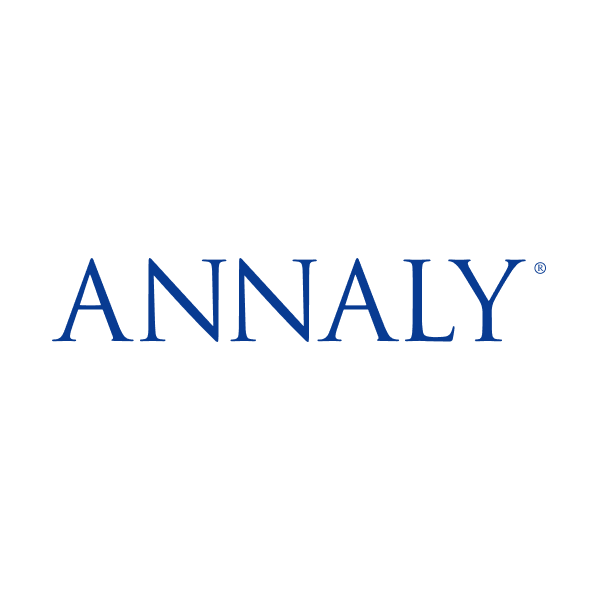New Residential Investment Corp
LSE:0K76

| US |

|
Johnson & Johnson
NYSE:JNJ
|
Pharmaceuticals
|
| US |

|
Berkshire Hathaway Inc
NYSE:BRK.A
|
Financial Services
|
| US |

|
Bank of America Corp
NYSE:BAC
|
Banking
|
| US |

|
Mastercard Inc
NYSE:MA
|
Technology
|
| US |

|
UnitedHealth Group Inc
NYSE:UNH
|
Health Care
|
| US |

|
Exxon Mobil Corp
NYSE:XOM
|
Energy
|
| US |

|
Pfizer Inc
NYSE:PFE
|
Pharmaceuticals
|
| US |

|
Palantir Technologies Inc
NYSE:PLTR
|
Technology
|
| US |

|
Nike Inc
NYSE:NKE
|
Textiles, Apparel & Luxury Goods
|
| US |

|
Visa Inc
NYSE:V
|
Technology
|
| CN |

|
Alibaba Group Holding Ltd
NYSE:BABA
|
Retail
|
| US |

|
3M Co
NYSE:MMM
|
Industrial Conglomerates
|
| US |

|
JPMorgan Chase & Co
NYSE:JPM
|
Banking
|
| US |

|
Coca-Cola Co
NYSE:KO
|
Beverages
|
| US |

|
Walmart Inc
NYSE:WMT
|
Retail
|
| US |

|
Verizon Communications Inc
NYSE:VZ
|
Telecommunication
|
Utilize notes to systematically review your investment decisions. By reflecting on past outcomes, you can discern effective strategies and identify those that underperformed. This continuous feedback loop enables you to adapt and refine your approach, optimizing for future success.
Each note serves as a learning point, offering insights into your decision-making processes. Over time, you'll accumulate a personalized database of knowledge, enhancing your ability to make informed decisions quickly and effectively.
With a comprehensive record of your investment history at your fingertips, you can compare current opportunities against past experiences. This not only bolsters your confidence but also ensures that each decision is grounded in a well-documented rationale.
Do you really want to delete this note?
This action cannot be undone.

| 52 Week Range |
10.1288
11.9891
|
| Price Target |
|
We'll email you a reminder when the closing price reaches USD.
Choose the stock you wish to monitor with a price alert.

|
Johnson & Johnson
NYSE:JNJ
|
US |

|
Berkshire Hathaway Inc
NYSE:BRK.A
|
US |

|
Bank of America Corp
NYSE:BAC
|
US |

|
Mastercard Inc
NYSE:MA
|
US |

|
UnitedHealth Group Inc
NYSE:UNH
|
US |

|
Exxon Mobil Corp
NYSE:XOM
|
US |

|
Pfizer Inc
NYSE:PFE
|
US |

|
Palantir Technologies Inc
NYSE:PLTR
|
US |

|
Nike Inc
NYSE:NKE
|
US |

|
Visa Inc
NYSE:V
|
US |

|
Alibaba Group Holding Ltd
NYSE:BABA
|
CN |

|
3M Co
NYSE:MMM
|
US |

|
JPMorgan Chase & Co
NYSE:JPM
|
US |

|
Coca-Cola Co
NYSE:KO
|
US |

|
Walmart Inc
NYSE:WMT
|
US |

|
Verizon Communications Inc
NYSE:VZ
|
US |
This alert will be permanently deleted.
New Residential Investment Corp
Total Current Liabilities
New Residential Investment Corp
Total Current Liabilities Peer Comparison
Competitors Analysis
Latest Figures & CAGR of Competitors
| Company | Total Current Liabilities | CAGR 3Y | CAGR 5Y | CAGR 10Y | ||
|---|---|---|---|---|---|---|
|
N
|
New Residential Investment Corp
LSE:0K76
|
Total Current Liabilities
$12.8B
|
CAGR 3-Years
-19%
|
CAGR 5-Years
-14%
|
CAGR 10-Years
15%
|
|

|
Starwood Property Trust Inc
NYSE:STWD
|
Total Current Liabilities
$750.8m
|
CAGR 3-Years
5%
|
CAGR 5-Years
11%
|
CAGR 10-Years
10%
|
|

|
Hannon Armstrong Sustainable Infrastructure Capital Inc
NYSE:HASI
|
Total Current Liabilities
$237.1m
|
CAGR 3-Years
45%
|
CAGR 5-Years
43%
|
CAGR 10-Years
38%
|
|

|
Annaly Capital Management Inc
NYSE:NLY
|
Total Current Liabilities
$68.5B
|
CAGR 3-Years
7%
|
CAGR 5-Years
-8%
|
CAGR 10-Years
-1%
|
|

|
AGNC Investment Corp
NASDAQ:AGNC
|
Total Current Liabilities
$79.4B
|
CAGR 3-Years
18%
|
CAGR 5-Years
-3%
|
CAGR 10-Years
5%
|
|

|
Rithm Capital Corp
NYSE:RITM
|
Total Current Liabilities
$12.8B
|
CAGR 3-Years
-19%
|
CAGR 5-Years
-14%
|
CAGR 10-Years
15%
|
|
New Residential Investment Corp
Glance View
New Residential Investment Corp., established in 2011 and headquartered in New York City, has carved a niche in the real estate investment trust (REIT) sector. The company primarily focuses on investing in, and managing, residential real estate-related assets. These include mortgage servicing rights (MSRs), residential mortgage-backed securities (RMBS), and other mortgages and loans. Essentially, New Residential acts as a sophisticated overseer of mortgage-related products, capitalizing on the roaring waves of the real estate market. The core of its business is to acquire MSRs, which are fee-generating assets derived from servicing pools of residential mortgages. With its strategic positioning, New Residential thrives on the incremental cash flows generated through these MSRs, accentuating its competitive edge in a volatile market. Moreover, New Residential Investment Corp. extends its ambit beyond just fee revenues. By leveraging its deep expertise in the real estate market, the company prudently invests in non-performing loans (NPLs) and seasoned loans, seeking significant returns by finding value where others may not. This venture into high-yield real estate assets allows the firm to cushion the cyclic nature of the housing market. Additionally, the strategic management of RMBS adds a layer of stable income and infiltrates the diverse financial ecosystem of the company. The key to its success lies in the art of balance — between capital preservation through secure investments like MSRs and higher yield opportunities such as NPLs and RMBS — allowing New Residential to capitalize on fluctuating market dynamics while ensuring substantial returns for its stakeholders.
See Also
What is New Residential Investment Corp's Total Current Liabilities?
Total Current Liabilities
12.8B
USD
Based on the financial report for Sep 30, 2024, New Residential Investment Corp's Total Current Liabilities amounts to 12.8B USD.
What is New Residential Investment Corp's Total Current Liabilities growth rate?
Total Current Liabilities CAGR 10Y
15%
Over the last year, the Total Current Liabilities growth was -11%. The average annual Total Current Liabilities growth rates for New Residential Investment Corp have been -19% over the past three years , -14% over the past five years , and 15% over the past ten years .




























 You don't have any saved screeners yet
You don't have any saved screeners yet
